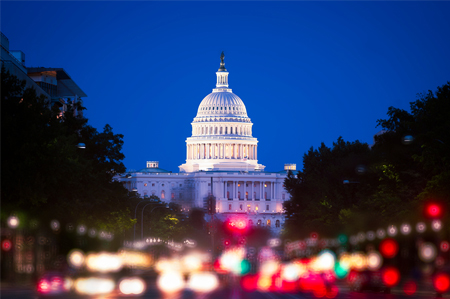Big Policy Decisions Ahead for Ag
Category: Policy
 (Ag Professional) – The goings-on surrounding the new Trump administration have dominated most of the recent discussions about agricultural policy. However, stepping back from presidential politics, there are a number of important policy and legal issues impacting agriculture and farmers in the coming year.
(Ag Professional) – The goings-on surrounding the new Trump administration have dominated most of the recent discussions about agricultural policy. However, stepping back from presidential politics, there are a number of important policy and legal issues impacting agriculture and farmers in the coming year.
Des Moines Water Works. A proxy battle between environmental activists and farming interests turned in ag’s favor. Des Moines’ water treatment entity filed suit against drainage districts seeking money to remove excess nitrates from treated water. Nutrient runoff was blamed for the excess nitrates. In January, Iowa’s Supreme Court ruled drainage districts are immune from paying monetary damages to Des Moines. Although farmers came out on top in this case, regulations and lawsuits pertaining to water issues will persist.
Litigation Of “Ag Gag” Laws. In 2017, courts in several states will decide the constitutionality of a number of laws intended to guard privacy on agricultural operations. Often derided as “ag gag” laws, these statutes impose criminal penalties for trespassers that gain employment on operations under false pretenses in order to gather video footage on farms and slaughter facilities.
The courts will have to balance First Amendment rights with a business’ right to privacy on private property.
Antitrust. There are many lawsuits relating to alleged collusion and price fixing in the poultry industry. The plaintiffs allege poultry integrators worked together to reduce broiler populations to prop up prices in the face of high feed costs after the ethanol mandate. The allegations are based on participation in data-sharing programs that allow companies to compare their costs relative to competition. It will be difficult for the plaintiffs to prove their case, but if these types of cases get traction, they could slow efforts to improve efficiencies in the industry.
GMO Labeling. In 2016, Congress passed a law establishing a national labeling regime for “bioengineered” foods. Although many in the agriculture and food industry (myself included) believe GMO labeling is unnecessary, a federal standard was a better alternative than the 50-state patchwork that could have emerged with various state-level labeling laws.
Congress’ law gives USDA until July 2018 to develop a regulation to implement the law. USDA will have substantial leeway in how it decides to approach the labeling requirement.
For instance, USDA will be able to determine minimum thresholds for biotech content that would trigger labeling requirements. Also, USDA can decide whether to require labeling for advanced biotech breeding techniques that don’t involve interspecies gene transfers (e.g., CRISPR).




